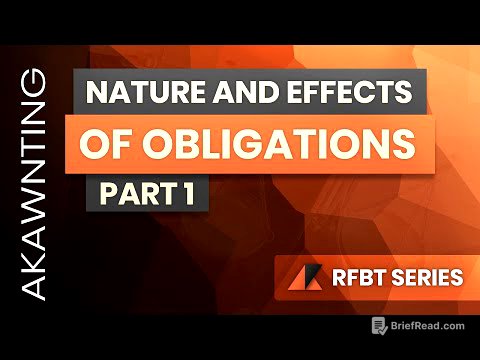TLDR;
This video discusses erectile dysfunction (ED) and focuses on nitric oxide (NO) as a key factor. It explains how NO deficiency can lead to ED and provides natural strategies to increase NO levels, including nasal breathing, regular exercise, consuming nitrate-rich foods, managing stress, and improving sleep. The video also touches on the relationship between NO and various health factors like testosterone, insulin sensitivity, and cortisol levels.
- Nitric oxide is crucial for erections and overall vascular health.
- Low nitric oxide levels are linked to erectile dysfunction, sleep apnea, and insulin resistance.
- Natural strategies like nasal breathing, exercise, and a healthy diet can boost nitric oxide production.
Introduction: Solutions and strategies for erectile dysfunction [0:00]
The video addresses the confusion surrounding erectile dysfunction (ED) solutions, noting that many strategies focus on managing the condition rather than fixing the root cause. The aim is to explore the pathophysiology and mechanisms behind ED to understand and resolve the underlying issues, moving beyond common treatments like Viagra. The presenter aims to provide information on how to resolve the condition by understanding the root cause.
Erectile dysfunction causes [0:35]
The presenter explains that erectile dysfunction isn't solely about low testosterone. While testosterone plays a role, some individuals with normal testosterone levels experience ED, while others with low testosterone do not. Nitric oxide (NO) is highlighted as a critical molecule in erectile function, with its levels decreasing with age. Viagra utilizes nitric oxide pathways, suggesting that a deficiency in NO is a likely cause of ED.
Understanding nitric oxide and erectile dysfunction [1:45]
Nitric oxide is produced by endothelial cells lining the arteries and is vital for vasodilation, increasing blood flow throughout the body. Low nitric oxide levels can lead to various health issues, including asthma. Nitric oxide regulates cortisol, a stress hormone, and high stress levels are linked to erectile dysfunction because erections are more likely to occur in a parasympathetic state (low stress). Nitric oxide also influences testicular steroids, aiding testosterone production and luteinizing hormone, which controls the testicles and testosterone levels. Additionally, nitric oxide is involved in sleep cycles, including REM sleep, explaining the connection between sleep problems and ED. It also increases insulin sensitivity, clarifying why diabetics with insulin resistance often experience ED, as high sugar levels damage the endothelial lining of arteries, reducing nitric oxide production. Statin drugs can also lower testosterone levels or increase the risk of ED by blocking cholesterol, a precursor for testosterone production.
How to naturally increase nitric oxide [5:00]
The video provides five natural ways to increase nitric oxide levels. First, nasal breathing increases nitric oxide production and oxygen release in the blood by 20% due to the greater resistance compared to mouth breathing. Second, regular exercise improves endothelial cell function in the vascular system, boosting nitric oxide production; combining mild exercise with nasal breathing can further enhance this effect. Third, consuming nitrate-rich foods like beets, spinach, kale, and other leafy greens increases nitric oxide levels. Conversely, it's important to avoid sugar and alcohol, as they decrease nitric oxide production, and to manage stress, which can inhibit nitric oxide. Finally, improving sleep quality can also help increase nitric oxide levels.
Check out my video on a helpful and unique breathing technique! [7:04]
The presenter recommends watching another video on a breathing technique related to nasal breathing, which provides additional information and is particularly useful for reducing cortisol levels, stress, and even panic attacks.









